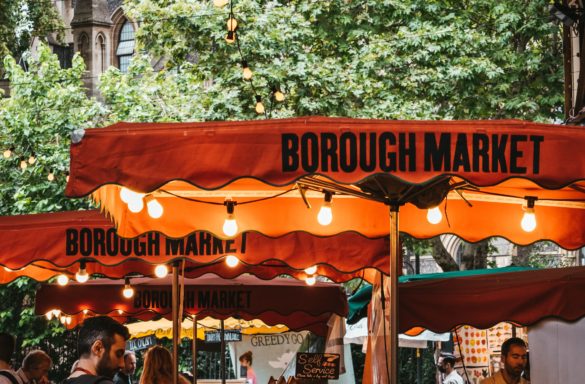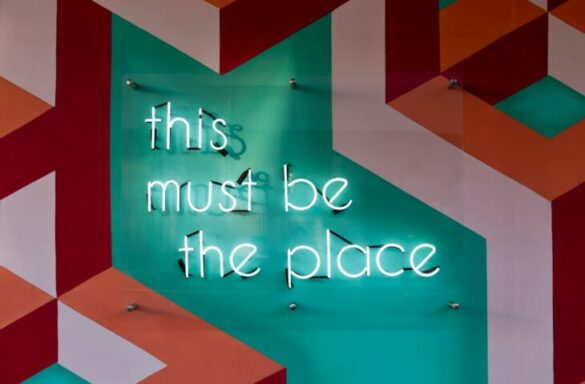ARTICLE
Embracing Friction
37°48’51”S 144°57’47”E
It seems self-evident that we want to move towards our goals directly, with as little stress and friction as we can.
Emphasis on efficiency and ‘seamlessness’ is increasingly apparent in many aspects of our lives, from the way we are positioned as consumers to how we think about use of urban spaces, and—especially—our engagement with technology.
One example that captured our attention recently: Amazon Go, the supermarket that boasts a fully automatic consumer transaction, dispensing with the need to fuss with credit cards or fellow humans.
The capacity for technology to modulate how we relate to others has been drawn into focus by the pandemic and the rise of online work. Meeting remotely with your colleagues cuts away superfluous (and serendipitous) interaction; even the most open-ended discussion is still scheduled and intentional, in the way that a chance encounter in the lobby (after spilling your coffee) is not.
But the pandemic has only sharpened focus on a process that has been taking shape in concert with modernity itself: that in which the natural volatility of life—its uneven pattern of stress and recovery—is seen as something to be stifled or subdued.
For Nassim Taleb, modernity equates to a ‘systemic smoothing of the world’s jaggedness’—and to the diminishing of the golden quality he calls antifragility.
Antifragility is inherent in all living things to some extent, and is also evident in human-made structures that mimic the organic in how they self-organise and evolve: a town, business, economy or idea.
It is not simply that antifragile entities withstand exposure to volatility. Rather, they improve as a result, in the way fire feeds on oxygen, or bones get denser in response to periodic stress. Children learn through mishap. Hardship results in wisdom, and emotional pain can produce great art.
The dose of stress is important: think of (some forms of) vaccination, where the right amount of virus builds immunity, rather than making you ill. And there must be the opportunity for regeneration. Compare the volatility of an ancestral environment (walking on uneven ground; feast-and-famine patterns of consumption) to the moderate but constant, background stress of exams, taxes, bosses, and general over-scheduling.
An inanimate object with a fixed function (i.e. a washing machine’s purpose is to wash clothes) will break or degrade when exposed to friction and periodic stress. Antifragile entities degrade when deprived of these things.
Helicopter parents lead to children with reduced resilience; muscles weaken as a result of too much rest. Some modern health problems are linked to easy satisfaction of the slightest feeling of hunger. And physical environments that are too tightly engineered for comfort lack that ill-defined essence we refer to as spirit or soul.
There are many instances when efficiency and ease are obviously desirable. But this must be balanced, we argue, against what is lost if we suppress, too strenuously, the lovely mess of serendipity. Open-ended (inefficient) meandering is essential for creativity: not just the kind that results in poems and symphonies, but also that which is required to live a sincere and open-hearted life.
We do not mean to suggest a chaotic, goalless free-for-all, nor a ‘return’ to some sort of romanticised, low-tech existence. Online work may be potentially alienating; but can also alleviate some of the other discomforts of modernity: the requirement that workers cut themselves off from roles as carers, local community members, even pet owners, during office hours, for instance. Not to mention that most lamented blight of civilised life: the commute.
It is possible to take all the upsides of modern efficiency and still honour our innate need for friction and stress (as well as rest and recovery). To marvel the ingenuity of Amazon’s ‘Just Walk Out’ technology, and still cherish the chance to chat to your local grocer or barista—a source of solace, especially, during those long and miserable lockdowns.[1]
It is precisely the capacity for people to regroup and rebound in the face of hardship that should be factored into our lives on a number of different levels.
When it comes to urban space and the built environment, do not ‘design out’ friction, challenge, the chance of error; these are the ingredients of adventure. (How might we take the commute, for example—currently possibly the worst part of our day—and open it up to inspiration and surprise?)
And in our personal and social lives: make space, if only occasionally, to shirk the heavy duty of planned obligation, and respond to your immediate time and place: the weather. Your mood. The emotion of another person. An idea that might be good or terrible. The unexpected side-effect of error. A turn that took you somewhere you didn’t know you wanted to go.
Or the feeling you get from a place that comes not from its capacity to satisfy your every convenience, but from something you sense but might struggle to define—the patina of character.
[1]Dutch supermarket chain Jumbo has dedicated lanes for people who would like to chat to the cashier rather than pay and leave as quickly as possible. And Francesca Tambussi has developed the concept of Hyperburgers, an ‘inconvenience store’ designed to ‘serve communities, not businesses’.
This article is written by Elizabeth Pearce and Su Lim. Elizabeth is a Melbourne-based writer with a background in literature and the visual arts and Su is the Global Managing Director of FreeState.
Header image credit: Warren Wong
Teaser image credit: Ricardo Gomez Angel



